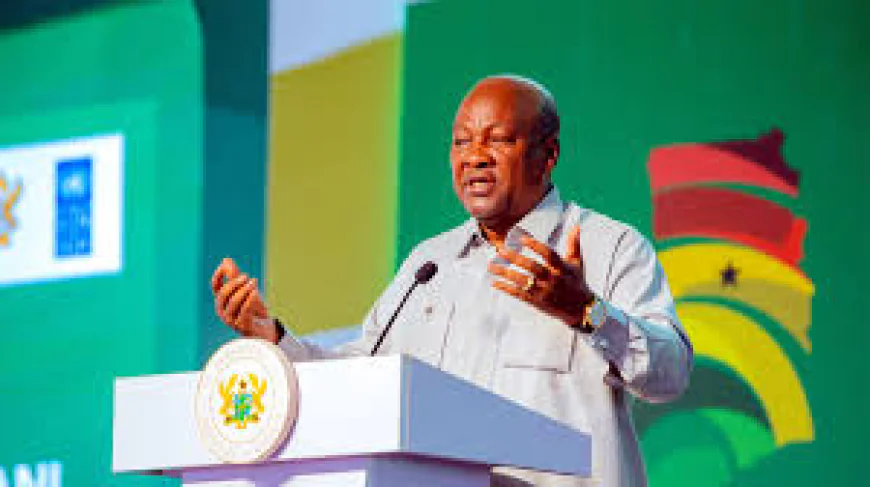Ghana's President Reinstates Licenses for 60 Closed Radio Outlets
President John Mahama has reversed the closure of approximately 60 radio stations in Ghana, a move celebrated as a win for media freedom.

President John Mahama has reversed the controversial closure of approximately 60 radio stations across Ghana. This move marks a significant shift in media policy, addressing concerns over censorship and access to information while reigniting debates about regulatory oversight in the broadcasting sector.
The Shutdown Controversy
The affected radio stations—primarily community and commercial outlets—were initially shut down by the National Communications Authority (NCA) for alleged licensing irregularities, non-renewal of permits, or failure to comply with regulatory fees. Critics, including media advocacy groups like the Ghana Independent Broadcasters Association (GIBA), condemned the closures as excessive and detrimental to democratic discourse, particularly in rural areas reliant on local radio for news and education.
President Mahama’s Intervention
Announcing the reversal at a press briefing in Accra, President Mahama emphasized the vital role of media in national development and accountability:
"A free press is the cornerstone of democracy. While regulation is necessary, it must not stifle voices that empower citizens. These stations will resume operations under a reformed compliance framework."
The decision includes:
-
Immediate reinstatement of licenses for stations willing to rectify documentation gaps.
-
A 90-day grace period to settle outstanding fees or update equipment.
-
Revised NCA guidelines to streamline licensing and avoid arbitrary closures.
Reactions from Stakeholders
-
Media Advocates: GIBA hailed the move as a "victory for pluralism," urging further reforms to prevent future disruptions.
-
Opposition Voices: Some lawmakers caution that unchecked reopenings could undermine broadcasting standards, calling for balanced oversight.
-
Public Response: Listeners in regions like Northern and Volta celebrated the return of local programming, citing radio’s role in education and crisis communication.
A Step Toward Media Reform?
President Mahama’s reversal aligns with Ghana’s reputation as a regional leader in press freedom (ranked 1st in Africa by Reporters Without Borders in 2023). However, challenges persist:
-
Sustainability: Will stations adhere to regulations post-reopening?
-
Political Undertones: Critics allege the closures targeted anti-government voices, a claim the NCA denies.
-
Digital Transition: The incident underscores gaps in Ghana’s shift from analog to digital broadcasting.
Ultimately
By prioritizing access over austerity, President Mahama’s policy shift sets a precedent for reconciling regulatory compliance with democratic values. As Ghana’s media landscape evolves, this decision may inspire broader reforms to protect both free speech and public interest.


